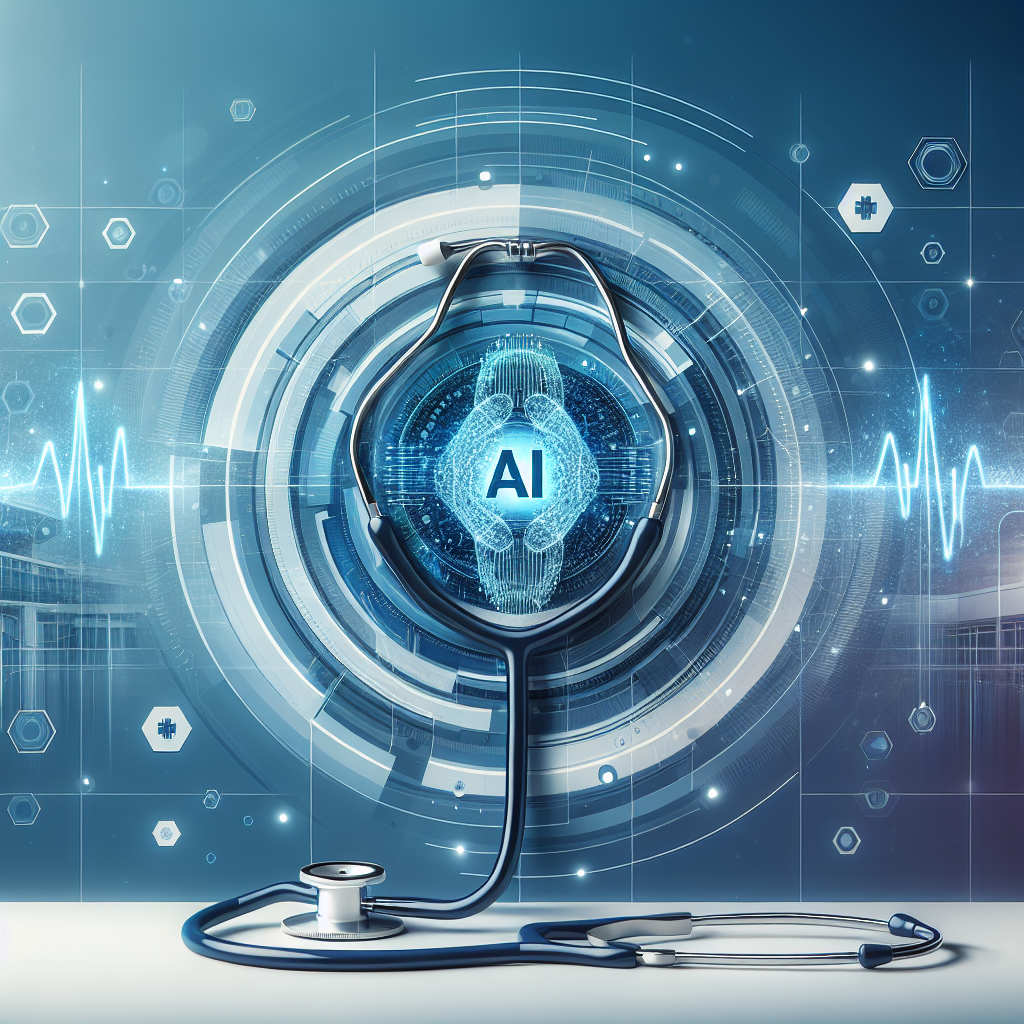Introduction
In recent times, the healthcare industry has undergone a significant transformation, primarily fueled by technological advancements. Among these, Artificial Intelligence (AI) emerges as a pivotal force, reshaping the delivery of care, the diagnosis of diseases, and the personalization of treatments. This article delves into the numerous ways AI is revolutionizing contemporary medicine, enhancing patient outcomes, and optimizing healthcare operations.
Enhancing Diagnostic Accuracy
A major application of AI in healthcare is its capacity to improve diagnostic precision. Machine learning algorithms can process extensive amounts of patient data, including medical imaging, laboratory results, and electronic health records, uncovering patterns that human practitioners might miss. For example, AI systems have shown exceptional success in diagnosing conditions from radiology images, skin disorders, and complex illnesses like cancer, often outperforming human specialists.
An impressive case is Google’s DeepMind, which has developed AI capable of detecting eye diseases from retinal scans with accuracy akin to leading ophthalmologists. Such innovations not only diminish diagnostic errors but also facilitate earlier interventions, significantly enhancing patient outcomes.
Personalized Medicine
AI is also pioneering personalized medicine—a customized strategy where treatments are adjusted based on an individual’s genetic profile, lifestyle, and preferences. By examining data from various origins, including genomics, proteomics, and clinical histories, AI assists clinicians in making informed choices about the most effective treatment strategies.
For instance, AI algorithms evaluate patients’ genetic data to predict responses to specific medications, enabling healthcare providers to prescribe therapies with a higher likelihood of success. This tailored approach not only boosts treatment effectiveness but also reduces potential side effects, making healthcare safer and more effective.
Streamlining Administrative Processes
The administrative challenges in healthcare present another opportunity for AI enhancement. Hospitals and clinics often face overwhelming paperwork, scheduling, billing, and data management duties. AI can streamline many of these administrative tasks, allowing healthcare professionals to concentrate more on patient care.
Technologies utilizing Natural Language Processing (NLP) can automate the transcription of patient notes and extract pertinent information from medical records. AI-driven chatbots can improve patient interaction, addressing inquiries and scheduling appointments autonomously. These developments greatly enhance operational efficiency and reduce costs, ultimately benefiting both patients and providers.
Drug Discovery and Development
AI is transforming drug discovery and development, a traditionally lengthy and costly endeavor. Machine learning algorithms analyze existing research data to predict which drug compounds are likely to be effective and identify potential side effects before clinical trials commence. This innovation promises to significantly decrease development time and costs while accelerating the introduction of new therapies to the market.
For example, companies like Atomwise are leveraging AI to transform drug discovery, employing deep learning to anticipate how different molecules will behave. Such advancements can hasten the development of essential medications, particularly in response to emerging health crises like pandemics.
Predictive Analytics for Patient Care
The capability of AI to analyze extensive datasets enables predictive analytics, significantly improving patient care. By identifying at-risk populations and anticipating potential health issues, AI tools facilitate proactive interventions. For example, predictive algorithms can evaluate data from wearable devices to monitor patient vitals, alerting healthcare providers if a patient’s condition worsens.
This functionality has proven particularly beneficial in managing chronic diseases. Predictive analytics can spot which patients may face complications, allowing healthcare teams to implement preventative strategies and optimize treatment protocols.
Ethical Considerations
Despite the numerous advantages that AI brings, its integration into healthcare raises ethical concerns. Issues surrounding data privacy, algorithmic bias, and the risk of dehumanizing care need to be addressed. Ensuring that AI systems are transparent, equitable, and supported by robust data governance frameworks is essential for fostering trust among patients and healthcare professionals alike.
Conclusion
AI is leading a revolution in healthcare, improving diagnostic accuracy, personalizing treatment options, streamlining administrative tasks, and expediting drug discovery. While challenges persist, the potential of AI to transform healthcare is vast, promising enhanced patient outcomes and increased operational efficiency. As technology continues to advance, so will the capabilities of AI, heralding a new era of modern medicine that prioritizes patient-centered care while harnessing the full potential of data-driven insights. The future of healthcare is undoubtedly more promising with AI at the helm.

